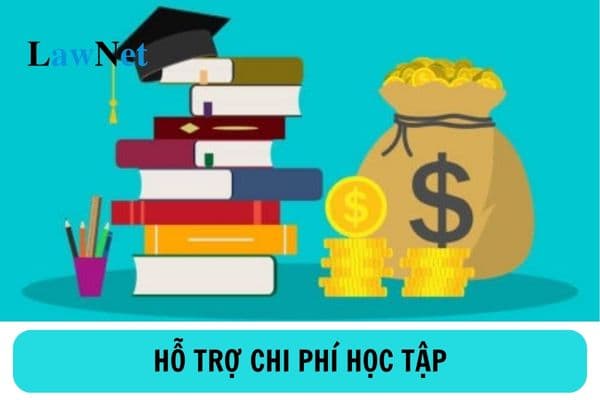Vietnam: What are the required documents for financing studying costs for ethnic minority students being members of poor households?
What are the conditions for financing studying costs for ethnic minority students being members of poor households in Vietnam?
According to the regulations in Article 2 of Joint Circular 35/2014/TTLT-BGDDT-BTC, the conditions for financing studying costs for ethnic minority students being members of poor households include the following conditions:
[1] Students must be ethnic minorities being members of poor households and near-poor households as defined by the Prime Minister's approval from time to time.
[2] Students must pass the entrance exam for full-time undergraduate or college programs at higher education institutions, including parent universities, academies, universities, and colleges in the year of admission, according to the regulations of competent state agencies concerning the Regulation on enrollment for full-time undergraduate or college programs.

What are the required documents for financing studying costs for ethnic minority students being members of poor households in Vietnam? (Image from Internet)
What are the required documents for financing studying costs for ethnic minority students being members of poor households in Vietnam?
According to Clause 1, Article 4 of Joint Circular 35/2014/TTLT-BGDDT-BTC, the required documents for financing studying costs for ethnic minority students being members of poor households in Vietnam include:
[1] Application for financing for studying costs;
[2] Certification of poor household or near-poor household status issued by the commune-level People's Committee (certified copy);
[3] Birth certificate (certified copy);
What are the procedures for financing studying costs for ethnic minority students being members of poor households in Vietnam?
According to Article 4 of Joint Circular 35/2014/TTLT-BGDDT-BTC, the procedures for financing studying costs for ethnic minority students being members of poor households in Vietnam are as follows:
Step 1: Students submit the application
- Within 30 days from the start of the academic year, education and training institutions must notify students about the financing for studying costs policy, the submission period for applications, and guide students to submit a complete application as required:
+ For students studying at non-public higher education institutions: submit applications to the Division of Labor - Invalids and Social Affairs where the student has permanent residence.
+ For students studying at public higher education institutions: submit applications to the public higher education institution where the student is enrolled.
- Students eligible for financing for studying costs only need to submit their application once at the start of the academic year. If during the academic year a student's family exits poverty status, the student must submit a document certifying that the household has exited poverty to stop the financing for studying costs for the next term.
For students not initially eligible for financing for studying costs, if during the academic year the student's family is added to the list of poor or near-poor households, the student needs to submit additional documents to receive financing for studying costs for the next term. The support duration is Under the validity of the poor or near-poor household certificate.
- Students who are eligible for financing for studying costs but do not submit the application with all necessary documents as required will only receive financing for studying costs from the date the education and training institution or Division of Labor - Invalids and Social Affairs receives the complete application until the end of the course and will not receive backdated support for the period before the application was submitted.
Step 2: Appraise the application
- For public higher education institutions:
The head of the public higher education institution organizes the review process, verifies and ensures the accuracy of the application; compiles and prepares a list and budget estimate for implementing the financing for studying costs policy, reports to higher management for approval, and submits to the finance agency for approval.
- Non-public higher education institutions must verify and sign the application for financing for studying costs within 10 days from receiving the student's application and guide students to submit their applications to the Division of Labor - Invalids and Social Affairs (where the student has permanent residence) for review and approval of the eligible list and budget estimate for implementing the financing for studying costs policy, and submit to the finance agency for approval.
The head of non-public higher education institutions is responsible for the accuracy of the information recorded on the student's verification document.
What is the studying cost financed for ethnic minority students being members of poor households in Vietnam?
Under Article 3 of Joint Circular 35/2014/TTLT-BGDDT-BTC, the current studying cost financed for ethnic minority students being members of poor households in Vietnam is as follows:
Financed studying cost
The financed studying cost is 60% of the statutory pay rate and is provided for no more than 10 months per academic year per student; the duration of financing for studying costs is under the official training duration.
Thus, the studying cost financed for ethnic minority students being members of poor households in Vietnam is 60% of the statutory pay rate and is provided for no more than 10 months per academic year per student, and the duration of financing for studying costs is under the official training duration.

